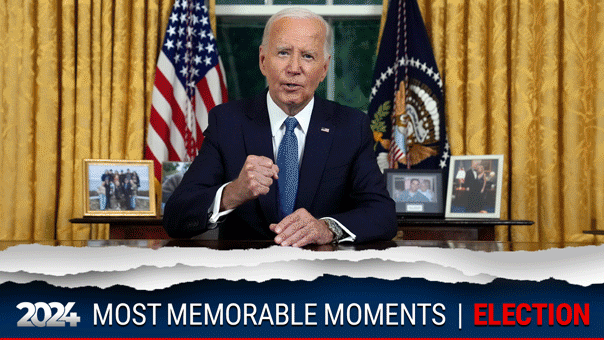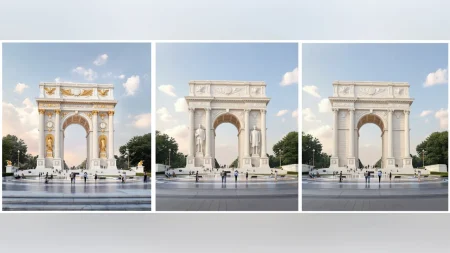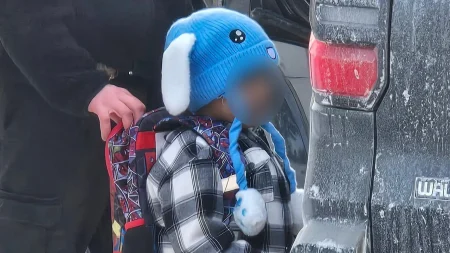While the year 2024 has just begun, its political landscape has already been punctuated by several noteworthy events, each carrying significant implications for the upcoming presidential election. Three distinct moments stand out as particularly memorable: President Joe Biden’s hypothetical withdrawal from the race, Vice President Kamala Harris’s appearance on Special Report with Bret Baier, and former President Donald Trump’s surprise visit to a McDonald’s drive-through. Each scenario offers a glimpse into the potential dynamics of the election cycle and the personalities shaping the political discourse. Analyzing these events reveals not only the individual narratives of the players involved but also the broader trends shaping the American political landscape.
President Biden’s hypothetical withdrawal from the race, though not an actual event, presents a compelling “what if” scenario. His departure would dramatically reshape the Democratic field, potentially opening the door for a wide array of candidates. The ripple effects could range from the resurgence of established figures to the emergence of new political stars. Such a shift would inevitably trigger a period of intense speculation and jockeying for position within the Democratic party. The resulting primary race would likely be fiercely contested, with candidates vying to capture the support of the diverse factions within the party. The very notion of this scenario underscores the inherent volatility of political landscapes and the ever-present possibility of unforeseen events altering the course of history.
Vice President Harris’s appearance on Special Report with Bret Baier offers a glimpse into the potential future of the Democratic party. As a prominent figure within the administration, Harris has the opportunity to articulate the Biden-Harris agenda and address critical questions regarding the nation’s future. Her appearance on a platform known for its conservative audience allows her to engage in a dialogue with a broader segment of the American public. Such an appearance underscores the importance of cross-partisan communication and the need for political leaders to engage with diverse perspectives. Harris’s performance and message in this setting could play a significant role in shaping public perception of her leadership capabilities and potentially influencing her future political trajectory.
Former President Trump’s surprise visit to a McDonald’s drive-through provides a starkly different snapshot of political engagement. Known for his unconventional approach to politics, Trump’s unexpected appearance at a fast-food establishment speaks to his populist appeal and his ability to connect with voters on a personal level. Such events often generate significant media attention and contribute to the ongoing conversation surrounding his political brand. While seemingly trivial, these interactions can solidify his image as a man of the people, directly engaging with everyday Americans in unconventional settings. This type of interaction, regardless of its political significance, exemplifies the evolving nature of political communication and the role of non-traditional media in shaping public perception.
Comparing these three scenarios reveals the multifaceted nature of political engagement in the digital age. Biden’s potential withdrawal represents a significant theoretical shift in the power dynamics of the Democratic party. Harris’s appearance on a conservative news program highlights the importance of reaching across the political aisle and engaging in substantive dialogue. Trump’s fast-food foray demonstrates the power of informal interactions and the cultivation of a relatable persona. Each scenario offers a unique perspective on the strategies employed by political figures to navigate the complex media landscape and connect with the electorate.
The hypothetical nature of Biden’s withdrawal distinguishes it from the other two scenarios. While Harris’s interview and Trump’s fast-food visit are concrete events, the discussion surrounding Biden’s potential departure remains purely speculative. This distinction highlights the critical role of speculation and conjecture in shaping political narratives. Even hypothetical scenarios can ignite significant public discourse and influence the perception of political figures and their potential trajectories. This underscores the dynamic and ever-evolving nature of the political landscape, where even imagined events can hold significant sway over public opinion and political calculations.
Finally, these three scenarios collectively underscore the significant role of media and public perception in shaping political outcomes. Each event, whether real or hypothetical, generates a narrative that resonates with specific segments of the population. The media plays a crucial role in amplifying these narratives, shaping public discourse, and ultimately influencing political outcomes. Understanding the interplay between these events and their media portrayal provides valuable insights into the dynamics of modern political campaigns and the increasingly influential role of public perception in shaping the future of American politics. As the 2024 election cycle progresses, similar moments will undoubtedly emerge, further shaping the political landscape and influencing the choices voters will make in the coming year.















